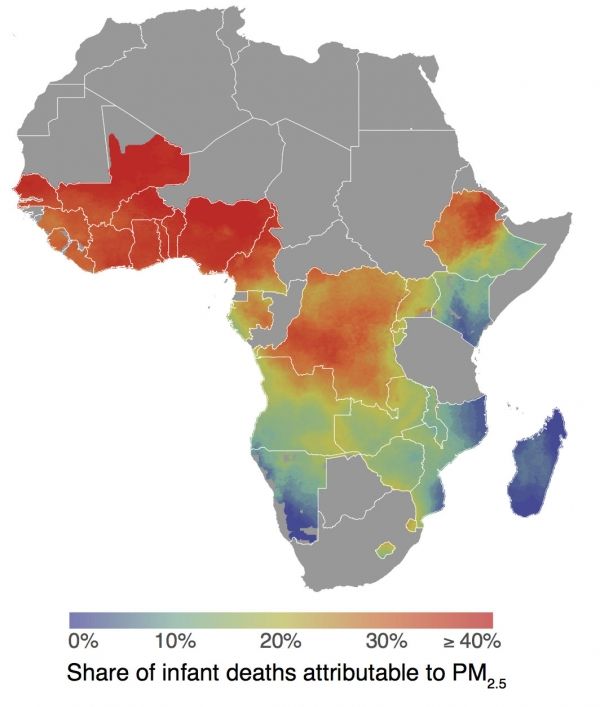In 2015, exposure to particulate matter in sub-Saharan Africa led to 400,000 otherwise preventable infant deaths, according to a new Stanford study. The research published this week in Nature, finds that even modest improvements in air quality could lead to substantial reductions in infant mortality in developing countries.
“Many wealthy countries have recently used legislation to clean up their air,” said Marshall Burke, study co-author and assistant professor of Earth system science in the School of Earth, Energy & Environmental Sciences at Stanford. “We find that if countries in Africa could achieve reductions in particulate matter exposure similar to wealthy countries, the benefits to infant health could be larger than nearly all currently used health interventions, such as vaccinations or food and water supplements.”
Led by Sam Heft-Neal, a research scholar at Stanford’s Center on Food Security and the Environment, the research team combined 15 years of survey data on nearly 1 million births across sub-Saharan Africa with satellite-based measurements of particulate matter, an important contributor to poor air quality. The mixture of microscopic particles in the air can cause serious health effects when inhaled.
Read more at Stanford University
Image: Stanford scientists calculate the amount of infant deaths due to high particulate matter concentrations in 31 sub-Saharan African countries. CREDIT: Marshall Burke


